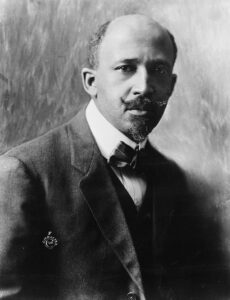
Today in Black History: July 25th
1941 – Emmett Till Is Born

Emmett Till, a 14-year-old African American boy from Chicago born on July 25th 1941, was brutally murdered in 1955 in Money, Mississippi, after allegedly offending a white woman. His killers, Roy Bryant and J.W. Milam, abducted, tortured, and threw his mutilated body into the Tallahatchie River. Despite overwhelming evidence, an all-white jury acquitted the men after a brief deliberation. Mamie Till-Bradley defiantly displayed her son’s disfigured body at his funeral, sparking national outrage and galvanizing the Civil Rights Movement. Emmett Till’s death brought attention to the pervasive racism and injustice faced by African Americans in the United States.
1900 – W.E.B. Du Bois Gives Famous “To the Nations of the World” Speech

W.E.B. Du Bois (1868-1963) was a prominent African American civil rights activist, sociologist, historian, and writer who profoundly influenced the fight for racial equality in the United States. Born in Great Barrington, Massachusetts, Du Bois experienced both the promise and challenges of racial integration from an early age. His academic excellence earned him scholarships to attend Fisk University and later Harvard University, where he became the first African American to earn a doctorate.
W.E.B. Du Bois would eventually emerge as a founder of the NAACP, a leading human rights activist and the most important African American intellectual of the 20th Century. However those developments lay in the future when the 32-year-old DuBois gave the closing address at the first Pan African Convention. He used the occasion to utter one of his most quoted statements, “The problem of the twentieth century is the problem of the color line…” Du Bois’s remarks were given on July 25, 1900 at the convention meeting site, Westminster Hall in London.
1984 – Willie Mae “Big Mama” Thornton Passes Away

Willie Mae “Big Mama” Thornton, a blues singer and songwriter, recorded “Hound Dog” and “Ball ‘n’ Chain,” later popularized by Elvis Presley and Janis Joplin. Born in rural Alabama in 1926, Thornton embarked on a career in entertainment after leaving home at 14. She joined the Hot Harlem Revue and later signed with Peacock Records in Houston in 1951. Thornton’s rendition of “Hound Dog” topped the R&B charts, selling over two million copies. Despite her early success, Thornton faced financial challenges. She continued performing and recording through the 1960s and 1970s, collaborating with blues legends like Muddy Waters and recording albums for labels like Arhoolie and Mercury. Thornton’s health declined due to alcoholism, but she continued performing until her death in 1984 on July 25th, leaving a lasting legacy in blues music.


